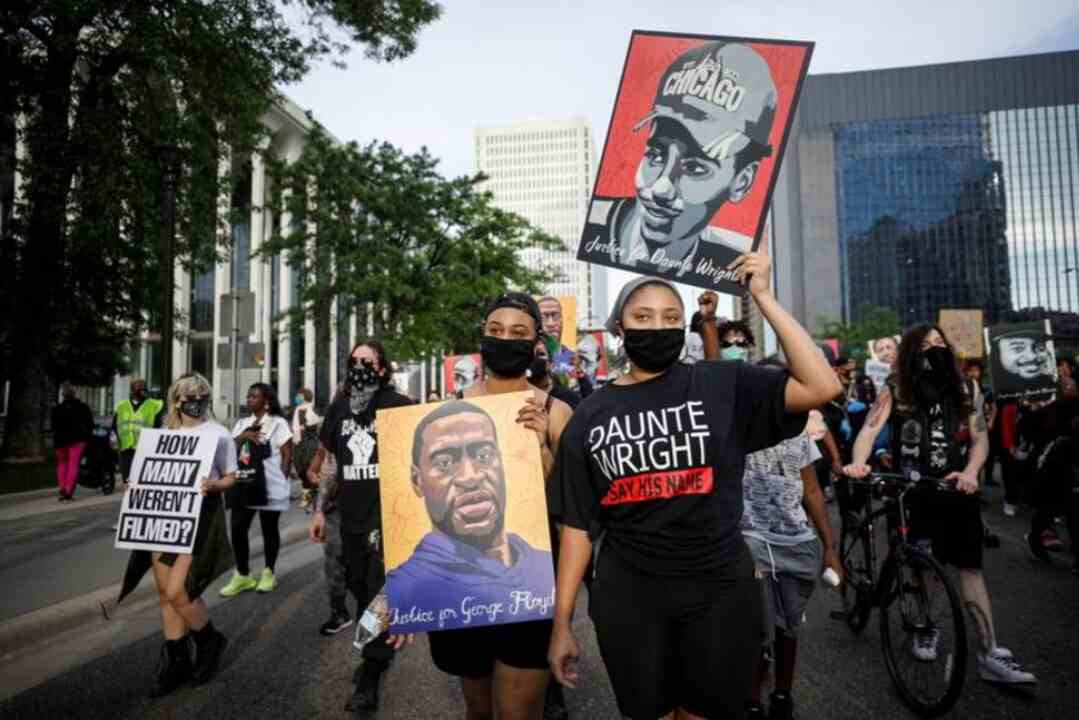Not enough justice

Finally, after a year and a month, justice has been served in the high-profile George Floyd case that inspired mass protest against racism, and against inhumanity, across the globe. Derek Chauvin — who on May 25 last year was video-recorded kneeling on Floyd's neck for a long nine minutes and 29 seconds leading to his death — is sentenced to 22 and a half years of imprisonment. George Floyd's family members, who still wake with the horrible memory of his cruel murder, believe that they have "got justice but not enough justice" — a feeling reiterated by many of the activist groups that have been fighting against racism in the country. The United States President feels that the sentence is "appropriate". But, can there be any substitute to the cruelty Floyd had been through those heart-rending "nine minutes"? Certainly not. It can also be debated how far the prison sentence will go in impacting the police conduct and making even a minor dent in the deep-rooted racism prevailing in the United States.
This case was particularly important as it was expected to set a bar against racial violence by police officials. The case had caught wider imagination and was closely and curiously looked into not just in the US but the entire world. Roughly, the extent of sentencing may have a precedent value on other cases and it can act as a benchmark to any such case in the future. The period of imprisonment awarded to Chauvin is historically high for a police officer, but is it also good enough? Technically, the maximum sentence that could have been awarded to Chauvin under the law is 40 years, and the minimum under Minnesota laws is 12.5 years. His prison sentence is somewhat balanced between the two. Chauvin will effectively spend around two-thirds of the sentence — around 15 years — in prison and the rest at parole. Besides, the other three accused — Tou Thao, J Alexander Kueng and Thomas Lane — who are in the crosshairs of the Minnesota executive, are still to face the trial on the charges of aiding and abetting Derek Chauvin. They are also punishable for a maximum of 40 years of imprisonment. The justice delivered on Friday to Floyd's soul and his family is not the full measure — not just in terms of the quantum of the sentence awarded to the convict. Vindictive justice is just half part of the story. There has to be constructive justice as well. Floyd can't be returned back to his family, that's certain and no amount of compensation could suffice in the matter. But justice can still be delivered gradually over time by ensuring a society around Floyd's family and the Black community which would recognise their due right to a dignified life, and in some cases, plainly a life! This is still a far dream. The illegal and insensitive act of the neo-Nazi right-wing group that vandalised and black painted Floyd's statue in New York and New Jersey a few days before the hearing reaffirms the same. One of the statues was established as a symbolic gesture a week before on Juneteenth to mark the end of slavery. With the coward vandalisation of the symbol, the vision of a non-racist society was left in shambles. As long as this venomous sentiment is dominant in American society, justice will be far from Floyd, his family and his community. Also, police killings of Blacks continue unabated even after Floyd's murder. As per the data compiled by Mapping Police Violence, 9,179 people were killed by the police in the US between 2013 and 2021; and Blacks are three times more likely to be killed in comparison to their White counterparts despite representing just 13 per cent of the overall population. Delegitimization of this crime is a complex task because of the deep roots that racism has in the United States' society. It has been culturally and socially ingrained over the centuries. Removing the layers of this sinful presence is a long and tedious task, but not longer than the age of humanity and not tedious enough to defeat the human spirit. This was reaffirmed by the way the US people, and the world at large, stood united against Floyd's murder. However, the victory is too small to be celebrated with pomp at this moment. It can at best be relished calmly with some respite and be used as a base for the larger resolve — justice in full measure.



